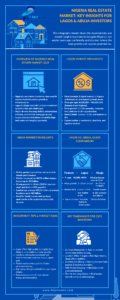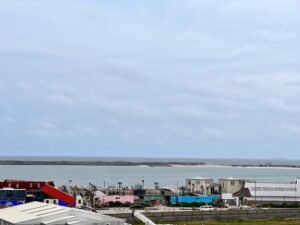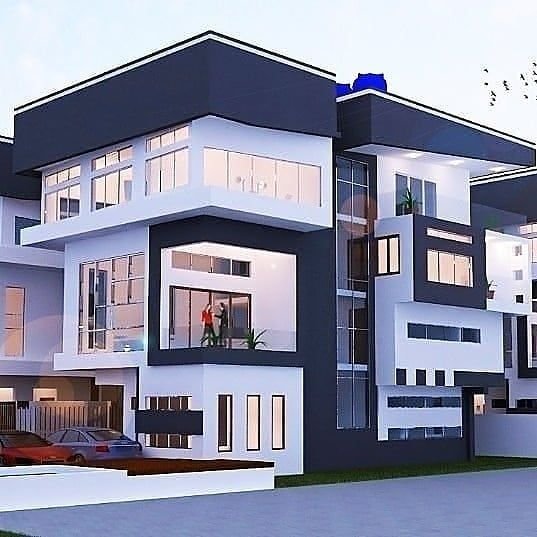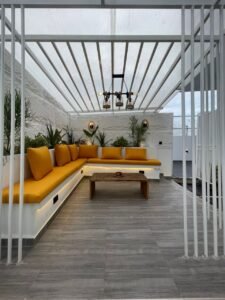Nigeria’s real estate market remains a cornerstone of wealth creation, shaped by rapid urban growth, infrastructure investment, and a chronic housing deficit.
In 2025, Lagos and Abuja continue to lead the scene, each offering unique opportunities and risks. Lagos hosts the most dynamic markets, from upscale enclaves to emerging corridor developments, while Abuja’s orderly, government-driven demand ensures steadier performance.
This article presents deep market insights, product-level analysis, and investor guidance tailored to the realities of 2025 and many years to come. Whether you’re a developer, investor, or homeowner, you’ll find actionable intelligence to power your decisions.
The forces shaping Nigeria’s real estate market are deeply structural. The housing deficit remains one of the most critical factors, with millions of units still needed, especially in affordable and serviced-apartment segments.
Urbanisation continues to drive demand, with Lagos standing as Africa’s fastest-growing megacity and Abuja expanding steadily as an administrative and diplomatic hub.
Yet macroeconomic conditions remain challenging, currency depreciation pushes up construction costs, inflation eats into purchasing power, and mortgage access remains limited, leaving most deals cash-based or developer-financed. Add in high land acquisition costs and lengthy approval processes, and the supply demand imbalance becomes clear.
Lagos Market Highlights
Lagos is the country’s most liquid and varied real estate market. It is home to luxury neighbourhoods such as Victoria Island and Ikoyi, mid-market growth corridors like Lekki and Ajah, and emerging industrial hubs along key transport routes.
-
Price per square meter: Luxury areas like Banana Island can command up to ₦1,000,000 per sqm. More moderate areas range between ₦200,000 to ₦400,000 per sqm.
-
Price appreciation: In high-demand areas such as Lekki, Ikoyi, and Victoria Island, property prices appreciated by around 15% in 2024, a trend expected to continue into 2025. More broadly, Lagos prices are rising between 10–30% depending on location and property type.
-
Rental yields: Luxury real estate in Lagos delivers average rental yields of around 5.5% annually. In emerging areas like Lekki and Ajah, yields of 6–8% are attainable. a 3 bedroom apartment cost between 15-30m yearly in Lekki phase one now.
-
Land prices: Land on Banana Island, for example, costs between ₦10 million to ₦25 million per sqm.
Strategically, investors in Lagos should mix mid-market residential assets for steady cash flow with select luxury or off-plan projects for capital gains. Shortlets remain attractive but require strong operational management and awareness of evolving regulations. The logistics sector offers long-term growth potential, particularly in sites close to major transport infrastructure.

Abuja Market Highlights
Abuja’s real estate scene offers steadier performance driven by government, corporate, and diplomatic demand.
-
Home prices: The median price for houses in Abuja is approximately ₦378 million as of mid-2025.
-
Luxury segment: A standard four-bedroom detached home in Maitama or Asokoro sells for between ₦300 million and ₦1 billion.
-
Submarket dynamics: In areas like Utako, house prices have more than doubled year-on-year to about ₦431 million. In Kado, prices are up 39% year-on-year to approximately ₦286 million.
-
Land prices: The average price for land in prime districts like Wuse 2 can be as high as ₦2 billion, with a broader average of about ₦350 million across Abuja.
-
Demand trajectory: Residential land values in Abuja appreciate annually at around 8–10%, with housing demand projected to grow by 8% through 2025.
For Abuja investors, well-located family housing and serviced apartments near diplomatic and administrative centres are the most reliable bets. Price growth is typically moderate but consistent, offering stability and lower volatility compared to Lagos. This makes Abuja ideal for income-focused investors or institutions seeking steady returns.
Comparative Snapshot: Lagos vs. Abuja
| Feature | Lagos (Dynamic/Speculative) | Abuja (Stable/Government-Driven) |
|---|---|---|
| Price per sqm (residential) | ₦200k–₦1M (moderate to luxury) | Median house price ~₦378M |
| Price growth | 5–15%+ annually (depending on micro-market) | 8–39% in hotspots like Utako and Kado |
| Rental yields | 5.5% luxury; 6–8% mid-market | 5–6% family homes; serviced apartments higher |
| Vacancy (residential) | Variable—higher in luxury areas | Generally lower vacancy due to stable demand |
| Investor risk profile | Higher (due to volatility, oversupply) | Lower (mainly government/diplomatic demand) |
| Best asset play | Mid-market residential, shortlets, logistics | Family homes, gated estates, serviced apartments |
Nigeria’s real estate data landscape remains fragmented. Lack of centralized transaction records means investors must triangulate listings, developer reports, and real estate firm market briefs carefully to form accurate views.
For property platforms and publishers, transparency builds credibility, highlight asking vs. transacted prices, ranges, time-series charts, methodology notes, and provide downloadable data. Interactive maps and yield calculators make real estate data actionable for readers.
Nigeria’s real estate sector is ultimately a story of structural demand meeting macroeconomic complexity. Lagos rewards agile, informed investors willing to navigate micro-market nuances, while Abuja offers dependable, income-oriented opportunities.

Mid-market residential properties and well-managed serviced apartments stand out across both cities for balancing yield, demand, and risk. The next 12–24 months could bring compelling opportunities for those grounded in real data, local context, and strategic vision.
When making your property investment decisions in Nigeria, especially in Lagos and Abuja, F-SKY Homes stands out as the premier real estate company to partner with.
With deep local knowledge, expert insight into the best locations, and a strong track record in delivering ROI-driven investments, F-SKY Homes guides investors to the most profitable opportunities in the market.
Choosing F-SKY Homes means making informed, strategic moves backed by the best expertise in the industry.
If you found this market data and analysis valuable, please share it with your network and audience. Help others learn about the current trends and opportunities in Nigerian real estate so they too can make smart investment decisions. Together, we can build a more informed property investment community.






